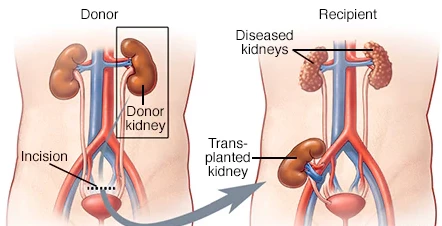
Introduction:
Kidney transplantation is a life-saving treatment option for individuals with end-stage renal disease (ESRD). While it offers significant benefits in terms of improved quality of life and long-term survival, there is no denying that kidney transplantation comes with financial implications. In this article, we will explore the factors that contribute to the cost of kidney transplantation and discuss ways to manage the financial aspects associated with this procedure.
The Cost Factors:
Pre-transplant Evaluation: Before a kidney transplant, patients undergo a comprehensive evaluation that includes medical tests, imaging studies, consultations with various specialists, and psychosocial assessments. These evaluations can be expensive, as they aim to ensure the suitability of the recipient and minimize the risks associated with transplantation.
Surgery and Hospitalization:
The kidney transplant surgery itself is a complex procedure that requires a skilled surgical team, specialized equipment, and post-operative care. The costs associated with the surgery include the surgeon’s fees, anesthesia, operating room charges, and hospitalization expenses. The duration of hospital stay can vary but typically ranges from a week to several weeks.
Immunosuppressant Medications:
After a kidney transplant, patients need to take lifelong immunosuppressant medications to prevent organ rejection. These medications help suppress the immune system, allowing the transplanted kidney to function properly. The cost of immunosuppressants can be significant, and access to affordable and reliable medication is crucial for long-term success.
Follow-up Care and Monitoring:
Post-transplant care is essential to ensure the success of the transplant and prevent complications. Regular check-ups, blood tests, imaging studies, and medication adjustments are part of ongoing monitoring. These visits and tests contribute to the overall cost of kidney transplantation.
Managing the Financial Aspect:
Health Insurance: Having comprehensive health insurance coverage is vital for managing the costs associated with kidney transplantation. Different insurance plans have varying coverage options, and it is important to review the terms and conditions of your policy, including coverage for transplantation, medications, and post-operative care. Medicare, Medicaid, and private insurance providers may offer coverage for kidney transplantation, but it is essential to understand the limitations and out-of-pocket expenses associated with each plan.
Financial Assistance Programs:
Various financial assistance programs are available to help alleviate the burden of transplant costs. Non-profit organizations, government agencies, and charitable foundations offer grants, scholarships, and other forms of assistance to eligible transplant recipients. It is advisable to research and inquire about these programs to determine eligibility and access available support.
Organ Transplant Centers:
Different transplant centers may have varying costs associated with kidney transplantation. It is worth considering multiple centers and discussing the financial aspects with each one. Some centers may offer financial counseling or assistance programs to help patients navigate the costs more effectively.
Fundraising and Support Networks:
In some cases, individuals and their families resort to fundraising efforts through community events, online platforms, or social networks to help cover transplant-related expenses. Engaging with support networks, patient advocacy groups, and online communities can provide valuable guidance and resources for managing the financial challenges.
Chief minister Relief fund support:
The Chief Minister Relief Fund (CMRF) offers people who belong to countries like India a structure initiated and run by the administration in a safe and easy-to-understand manner, allowing them to regain their stance in case they have to deal with unforeseen circumstances of natural disasters.
Conclusion:
Kidney transplantation is undoubtedly a significant investment in terms of financial resources. While it may be costly, it is crucial to weigh the long-term benefits and improved quality of life that transplantation offers. By understanding the cost factors involved, exploring health insurance options, seeking financial assistance programs, and leveraging support networks, individuals can better manage the financial aspects associated with kidney transplantation. Open communication with healthcare providers and financial counselors is key to addressing concerns and developing a comprehensive plan to ensure the best possible outcomes while navigating the financial challenges.
